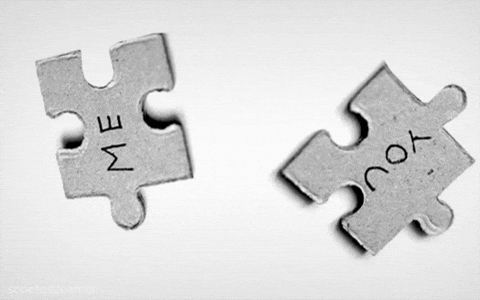Mind-body practices encompass a wide range of techniques and activities that emphasize the connection between your mental and physical states. These practices are rooted in the understanding that your thoughts, emotions, and physical health are intricately linked. When you engage in mind-body practices, you are not merely focusing on one aspect of your being; instead, you are nurturing a holistic approach to well-being.
This interconnectedness is essential for achieving balance and harmony in your life. As you delve deeper into mind-body practices, you may find that they can take many forms, from meditation and yoga to tai chi and qigong. Each of these practices offers unique benefits and approaches to fostering awareness and connection between your mind and body.
By exploring these various techniques, you can discover which ones resonate with you personally, allowing you to cultivate a more profound sense of self-awareness and inner peace.
Key Takeaways
- Mind-body practices involve techniques that focus on the connection between the mind and body, such as meditation, yoga, and tai chi.
- The science behind the mind-body connection shows that these practices can help reduce stress, improve mental well-being, and enhance physical health.
- Benefits of mind-body practices include reduced anxiety, improved mood, better sleep, and enhanced immune function.
- Different types of mind-body practices include mindfulness meditation, progressive muscle relaxation, deep breathing exercises, and guided imagery.
- Incorporating mind-body practices into daily routine can be done by setting aside time for meditation, practicing yoga or tai chi, and being mindful during daily activities.
The Science Behind Mind-Body Connection
The mind-body connection is not just a philosophical concept; it is supported by a growing body of scientific research. Studies have shown that your mental state can significantly influence your physical health. For instance, stress and anxiety can lead to various health issues, including cardiovascular problems, weakened immune function, and chronic pain.
Conversely, positive mental states can enhance your overall well-being and even promote healing. Neuroscience has also shed light on how your brain and body communicate. The brain releases neurotransmitters and hormones that affect your physical state, while your body sends signals back to the brain about its condition.
This bidirectional communication highlights the importance of nurturing both your mental and physical health. By engaging in mind-body practices, you can create a positive feedback loop that enhances your overall well-being.
Benefits of Mind-Body Practices

Engaging in mind-body practices can yield a multitude of benefits for your overall health and well-being. One of the most significant advantages is stress reduction. When you incorporate techniques such as meditation or deep breathing into your routine, you can activate the relaxation response in your body, leading to lower levels of cortisol and other stress hormones.
This reduction in stress can improve your mood, enhance your focus, and promote a greater sense of calm. In addition to stress relief, mind-body practices can also improve your physical health. Regular engagement in activities like yoga or tai chi can enhance flexibility, strength, and balance.
These practices not only promote physical fitness but also encourage mindfulness and self-awareness. As you become more attuned to your body’s needs, you may find it easier to make healthier lifestyle choices, further contributing to your overall well-being.
Different Types of Mind-Body Practices
| Practice | Description | Benefits |
|---|---|---|
| Yoga | A physical, mental, and spiritual practice that originated in ancient India. | Improves flexibility, strength, and posture; reduces stress and anxiety. |
| Meditation | A practice where an individual uses a technique – such as mindfulness or focusing the mind on a particular object, thought, or activity – to train attention and awareness. | Reduces stress, improves concentration, promotes emotional health. |
| Tai Chi | An ancient Chinese tradition that involves a series of movements performed in a slow, focused manner and accompanied by deep breathing. | Improves balance, flexibility, and muscle strength; reduces stress and anxiety. |
| Pilates | A physical fitness system developed in the early 20th century by Joseph Pilates, after whom it was named. | Improves flexibility, muscle strength, and posture; enhances mental well-being. |
There is a diverse array of mind-body practices available for you to explore, each offering unique approaches to fostering the connection between your mind and body. Yoga is one of the most well-known practices, combining physical postures, breath control, and meditation to promote relaxation and mindfulness. Whether you choose a vigorous vinyasa flow or a gentle restorative class, yoga can help you cultivate awareness and balance.
Meditation is another powerful mind-body practice that allows you to quiet your mind and focus on the present moment. There are various forms of meditation, including mindfulness meditation, loving-kindness meditation, and transcendental meditation. Each technique offers different benefits, from enhancing concentration to fostering compassion for yourself and others.
By experimenting with different styles, you can find the one that resonates most with you.
How to Incorporate Mind-Body Practices into Daily Routine
Incorporating mind-body practices into your daily routine doesn’t have to be overwhelming or time-consuming. Start by setting aside just a few minutes each day for these activities. You might begin with a short meditation session in the morning or practice deep breathing exercises during your lunch break.
As you become more comfortable with these techniques, you can gradually increase the time you dedicate to them. Creating a dedicated space for your mind-body practices can also enhance your experience. Designate a quiet corner in your home where you can engage in yoga or meditation without distractions.
Surround yourself with calming elements such as candles, plants, or soothing music to create an inviting atmosphere. By establishing a routine and environment that supports your practice, you’ll be more likely to stick with it over time.
Mind-Body Practices for Stress Management

When it comes to managing stress, mind-body practices can be incredibly effective tools in your arsenal. Techniques such as progressive muscle relaxation involve systematically tensing and relaxing different muscle groups in your body, helping you release physical tension associated with stress. This practice not only promotes relaxation but also enhances your awareness of how stress manifests physically in your body.
Mindfulness meditation is another powerful method for stress management. By focusing on the present moment without judgment, you can cultivate a sense of calm amidst life’s challenges. As you practice mindfulness regularly, you may find that you become more resilient in the face of stressors, allowing you to respond rather than react impulsively.
This shift in perspective can lead to improved emotional regulation and overall well-being.
Mind-Body Practices for Physical Health
Your physical health can greatly benefit from engaging in mind-body practices as well. Activities like yoga not only improve flexibility and strength but also promote better posture and alignment. As you become more aware of your body’s movements through yoga, you may find that you develop greater body awareness, which can help prevent injuries in daily life.
Tai chi is another excellent practice for enhancing physical health. This gentle martial art emphasizes slow, flowing movements that promote balance and coordination. Research has shown that tai chi can improve cardiovascular health, reduce falls in older adults, and enhance overall physical fitness.
By incorporating these practices into your routine, you can support your body’s health while fostering a deeper connection between your mind and body.
Mind-Body Practices for Mental Well-being
Mind-body practices are not only beneficial for physical health but also play a crucial role in enhancing mental well-being. Engaging in regular meditation can help reduce symptoms of anxiety and depression by promoting relaxation and fostering a sense of inner peace. As you cultivate mindfulness through meditation, you may find that negative thought patterns become less pervasive, allowing for greater emotional resilience.
Additionally, practices like journaling or expressive arts can serve as powerful tools for processing emotions and enhancing self-awareness. By taking the time to reflect on your thoughts and feelings through writing or creative expression, you can gain valuable insights into your mental state. This self-reflection fosters personal growth and encourages a deeper understanding of yourself, ultimately contributing to improved mental well-being.
In conclusion, mind-body practices offer a holistic approach to enhancing both physical health and mental well-being. By understanding the science behind the mind-body connection and exploring various techniques, you can discover the benefits these practices bring to your life. Incorporating them into your daily routine may require some effort initially, but the rewards—reduced stress, improved physical health, and enhanced mental clarity—are well worth it.
Embrace the journey of self-discovery through mind-body practices and unlock the potential for greater harmony within yourself.
Click here to subscribe for more >
FAQs
What are mind-body practices?
Mind-body practices are a variety of techniques and activities that focus on the connection between the mind and the body. These practices aim to promote overall health and well-being by integrating mental and physical processes.
What are some examples of mind-body practices?
Examples of mind-body practices include yoga, tai chi, qigong, meditation, deep breathing exercises, progressive muscle relaxation, and mindfulness-based stress reduction.
What are the potential benefits of mind-body practices?
Mind-body practices have been associated with a range of potential benefits, including stress reduction, improved mental clarity, enhanced physical flexibility and strength, better sleep, and overall improved quality of life.
Are mind-body practices suitable for everyone?
Mind-body practices can be beneficial for people of all ages and fitness levels. However, individuals with certain medical conditions or physical limitations should consult with a healthcare professional before starting a new mind-body practice.
How often should one engage in mind-body practices?
The frequency of mind-body practices can vary depending on individual preferences and schedules. Some people may benefit from daily practice, while others may find benefit from practicing a few times a week. It’s important to find a routine that works for you and your lifestyle.




